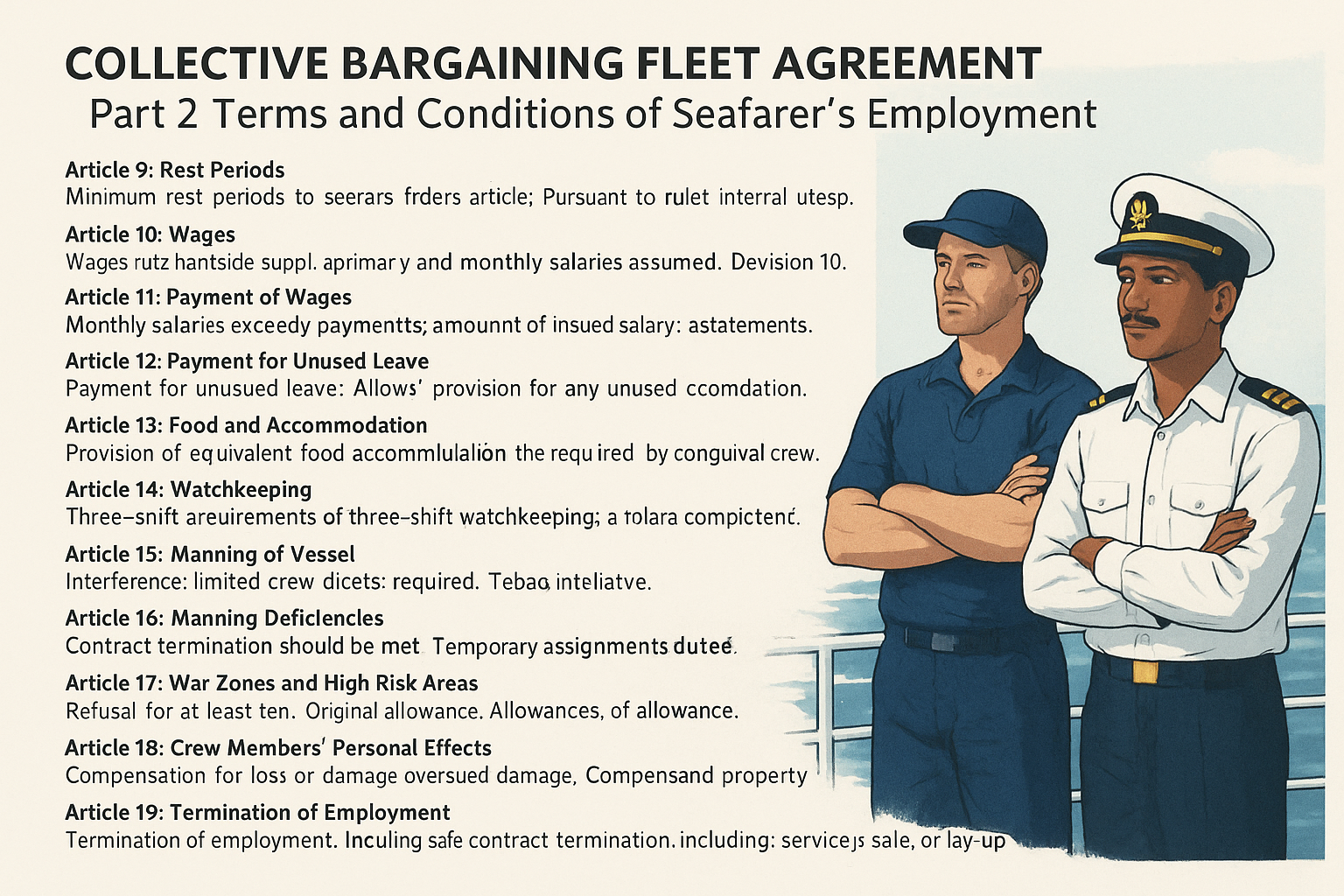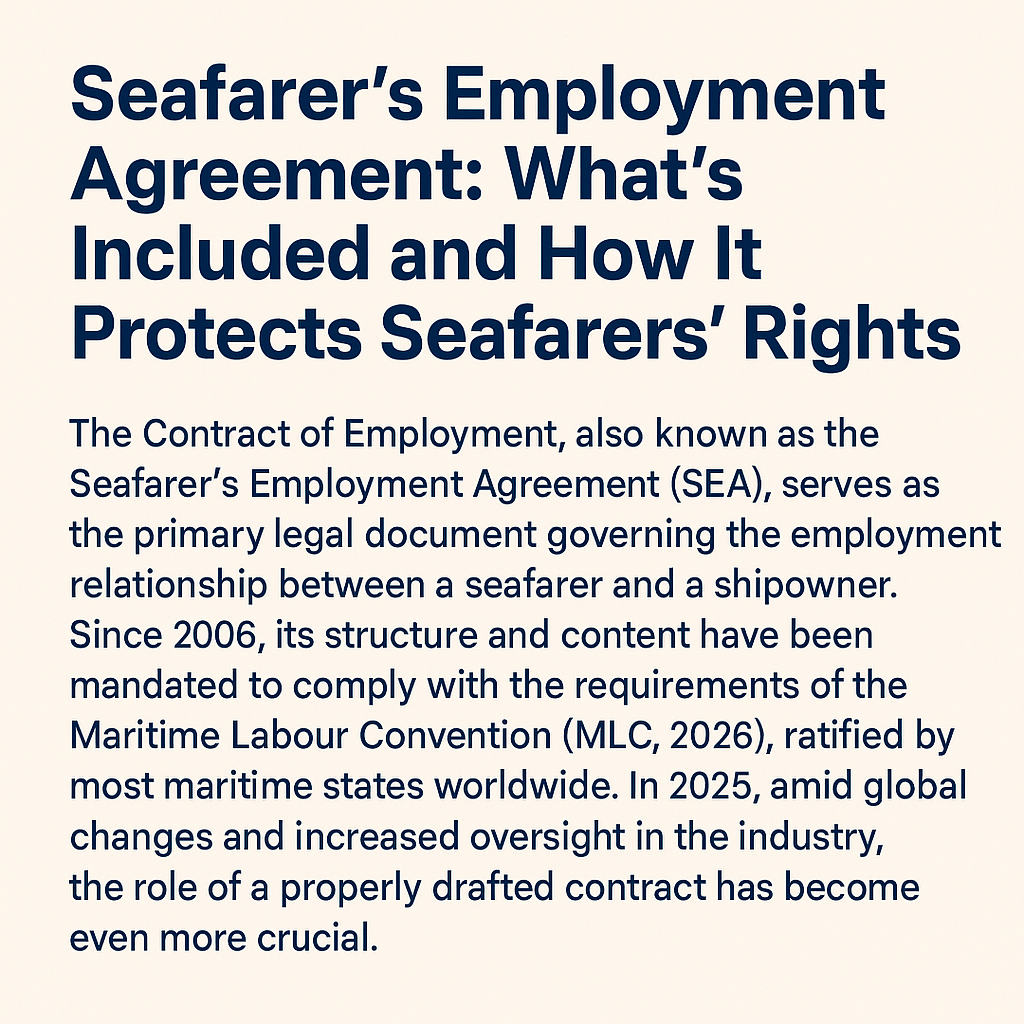Seafarer dismissal at his own expense: rules, conditions and consequences
In the maritime industry, dismissal or disembarkation of a seafarer at their own request is not just a personal decision but a strictly regulated legal procedure. In 2025, more and more seafarers and shipowners face the need to clearly understand the conditions and process of such dismissal initiated by the seafarer. This is especially relevant due to rising disciplinary disputes, new IMO standards, and the increasing demand for qualified crews.
What does “at own expenses” mean?
This means a seafarer voluntarily leaves the vessel and covers all associated expenses — travel home, formalities, replacement, and other logistics. This is contrary to the standard practice where the shipowner pays repatriation after contract completion.
According to Seafarer Employment Agreement (SEA):
- Repatriation at the owner's expense is only possible at contract completion or dismissal by the shipowner.
- If the seafarer requests early termination, the costs fall on them unless otherwise stated (e.g. death/illness of a relative).
Valid reasons for self-requested disembarkation:
- Family emergencies: death or serious illness of a close relative.
- Mental/physical exhaustion (confirmed by a doctor).
- Desire to change employer or working conditions.
But in such cases, the seafarer must be ready to:
- Pay transportation to the home country.
- Cover admin fees and agency costs.
- Sign formal termination documents.
When is it not considered "at own expense"?
- When the contract has ended and no further voyage is offered.
- When the vessel is delayed beyond contract terms.
- In cases of confirmed violations (poor conditions, unpaid wages).
- In case of illness contracted during work.
Possible consequences of voluntary dismissal:
- Financial burden — flights, hotels, visas, etc.
- Reputational risks — early termination may appear in agency/company records.
- Difficulty finding future jobs if reasons weren’t strong.
How to do it properly:
- Submit written request to the captain.
- Agree on repatriation terms with the company or agent.
- Sign all related documents (handover act, SEA termination, etc.).
📌 Important: No verbal agreements! Only documented steps are valid.
Tips for seafarers:
- Always read “Termination” and “Repatriation” sections before signing SEA.
- Discuss early disembarkation scenarios onshore with your agent.
- Keep copies of all documents and correspondence.
Conclusion:
Self-dismissal is an exception, not the norm. It must be legally correct and justified. A seafarer’s reputation is a key career asset — treat contracts and communication seriously for long-term success.
Self-dismissal is an exception, not the norm. It must be legally correct and justified. A seafarer’s reputation is a key career asset — treat contracts and communication seriously for long-term success.




